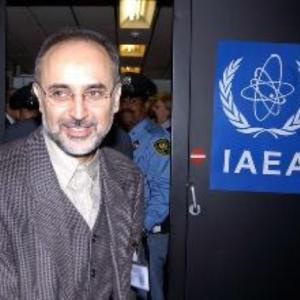The Vienna Visit and Salehi’s Hopes

Iranian FM Ali-Akbar Salehi met IAEA Director-General Yukia Amano on Tuesday in Vienna, Austria. Salehi, who has served as Iran's envoy to the UN nuclear watchdog and head of Iran's Atomic Energy Organization, said that Iran is ready to start new talks on its nuclear program, but it won’t relinquish its legitimate nuclear rights. He also reiterated Iran's invitation for Amano to visit Iran, but ruled out preconditions for the visit, saying it would otherwise be meaningless. Iranian Diplomacy interviewed former deputy director of Iran's Atomic Energy Organization Sadeq Rabbani about the prospect of nuclear talks:
IRD: Ali-Akbar Salehi is a seasoned nuclear diplomat. Can his re-engagement with the nuclear talks bring a new attitude to the course of negotiations?
SR: Iran and the IAEA have nothing left unsaid at this point, and they are well aware of each other’s attitudes towards the nuclear program. We have not seen any new ideas or comments exchanged for a long time. The Agency continues to say that Iran has failed to uphold its commitments and that the IAEA cannot verify the non-military nature of Iran's nuclear program. Regular test-firing of long- and mid-range missiles, besides uninterrupted uranium enrichment despite four punitive UN Security Council resolutions, may have added to concerns about Iran’s nuclear program.
IRD: Salehi has suggested that both sides work up a new modality plan. How feasible do you see that proposal?
SR: I think considering Salehi’s career background, the IAEA will contemplate his proposal. Salehi, is after all, a nuclear expert; has served as Iran's ambassador to IAEA, and has administered Iran's Atomic Energy Organization for two years. His record facilitates cooperation between Iran and the IAEA. However, the anti-Iran propaganda, especially those broadcast in the earlier years of Ahmadinejad's presidency, are still lingering and have tarnished Iran's image among IAEA members and functionaries. It takes time and energy before Iran's image is improved.
The modality plan you referred to was actually the grand framework of Iran-IAEA cooperation during the time Ali Larijani served as Iran's chief nuclear negotiator. Iran took constructive steps and resolved many ambiguities about its nuclear program. But George Bush’s staunch anti-Iran diplomacy of those years caused the plan to fail. The initial agreement was to put an end to Iran's nuclear dossier after it had clarified all the questions on the slate. But right afterwards, the IAEA posed new questions-- despite the agreement-- and left Iran's case open.
IRD: Iran has expressed interest in continuing nuclear negotiations while calling for an end to the investigations of the so-called the ‘alleged studies’ dossier. Is this a proposal the IAEA would likely accept?
SR: Considering Barack Obama's more moderate stance towards Iran compared with George W. Bush, I think the pressures from the American government on the IAEA have subsided; hence its further independence. This could be a chance for progress in the nuclear negotiations. A nuclear-savvy Iran is already acknowledged by the international community and does not raise frantic concerns as it used to do. So, there is an opportunity that Salehi could use to push the negotiations forward. However, there are two restricting conditions: one, Salehi is not granted full control of the nuclear talks by senior Iranian officials; two, Yukia Amano lacks the mettle to stand against powerful IAEA members.
IRD: Amano has been invited by Fereydoun Abbasi, present director of Iran's Atomic Energy Organization, to visit Iran's nuclear facilities. Do you see this as a step forward which can buttress the next round of nuclear talks?

